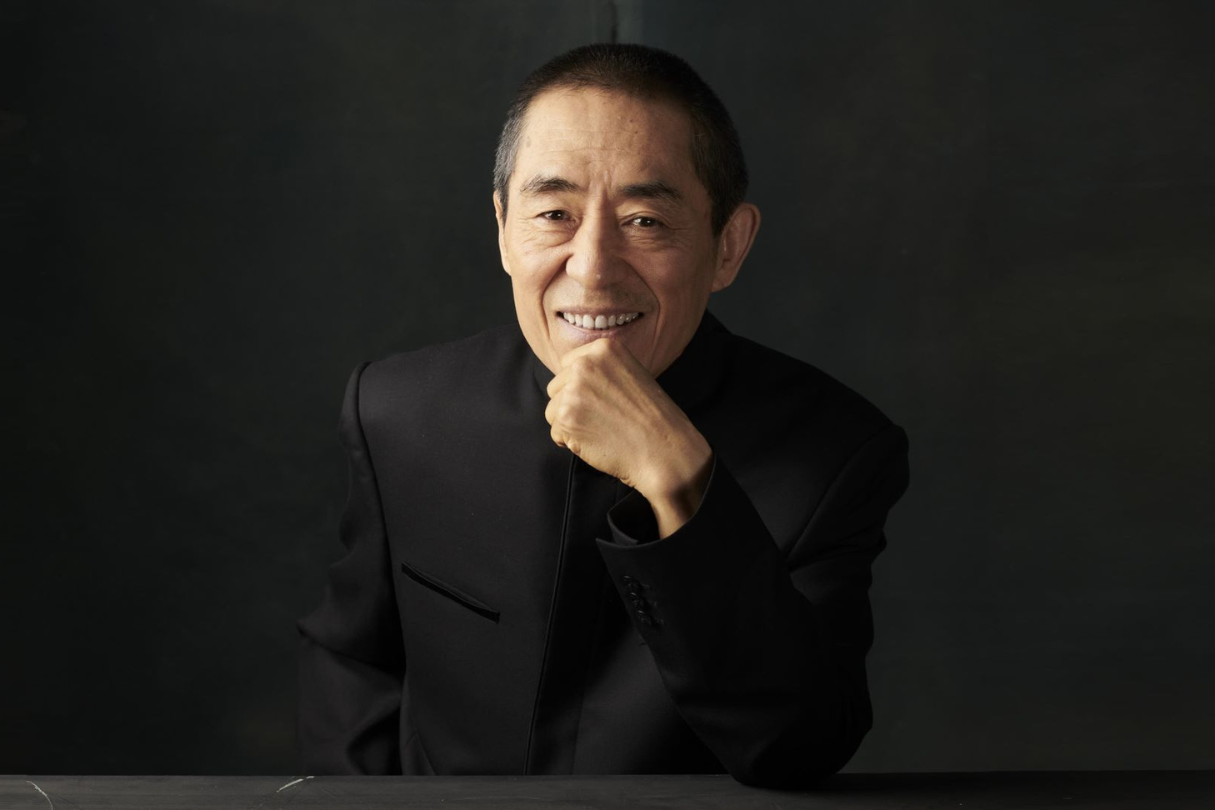My Own Private Cinema is a monthly RADII column that focuses on impactful and inspiring films from China’s cinema history.
Famed Chinese auteur Zhang Yimou reworking a noirish Coen Brothers classic — sounds like a recipe for cross-cultural cinematic success, right?
Well, sort of, but — appropriately enough — Zhang’s spin on Blood Simple is far from a straightforward offering.
25 years after the Coens’ brooding, Frances McDormand-led feature film debut, Zhang delivered A Woman, a Gun and a Noodle Shop (also known as A Simple Noodle Story) in 2009, a highly unusual tribute.
The piece delights in subverting expectations, which in itself is perhaps a Coenesque trait. Once you know it’s a Blood Simple remake, it becomes easy to spot the similarities in the twisting, double-triple-crossing plot. Yet visually, it’s essentially unrecognizable. And it’s not even what you’d expect from a Zhang Yimou film.
Zhang is renowned for his use of color, but rarely like this. Noodle Shop is anti-noir, the polar opposite of the director’s moody, monochromatic recent return to form with 2018’s Shadow and this year’s spy thriller Cliff Walkers.
In some ways its garishness is a little less jarring when you realise Noodle Shop came just one year after his historical spectacle The Curse of the Golden Flower, which at the time had the Chinese internet obsessing over its costumes (it was widely referred to as The Curse of the Golden Cleavage). With touches of knowing pastiche and self-parody, Noodle Shop feels like a letting off of steam after that taut imperial drama.
Golden Flower’s constrictive corsets and painstakingly pieced together historical setpieces make way for a highly saturated color palette and remarkable blink-and-you-miss-it pacing. The first half of the film in particular is a rapid fire rattling off of slapstick gags amid a blur of hot pinks and blues, all set against the dusty desert backdrop of China’s northwest.
In the Coens’ 1984 movie — their directorial debut, and a film that laid down a marker for the type of carefully constructed, witty, and character-driven narratives that would come to define their careers — a sleazy bar owner hires a private detective to bump off his wife and her lover. The deal triggers a series of double crosses as the story weaves its way to a classic Coen Brothers ending.
In Zhang’s reimagining, a small dead-end town in Texas is swapped for a small dead-end village in Gansu province in China’s northwest, the bar is swapped for the titular noodle shop, and the opening scene of a drive out of town in a torrential rainstorm is swapped for a whizzbang weaponry demonstration by a Silk Road salesperson.
Related:
 How Jiang Wen Reached His Directorial Peak on “The Sun Also Rises”Jiang Wen’s third film is an intense, colorful, humorous and perplexing look at the relationship between time and memoriesArticle Apr 14, 2021
How Jiang Wen Reached His Directorial Peak on “The Sun Also Rises”Jiang Wen’s third film is an intense, colorful, humorous and perplexing look at the relationship between time and memoriesArticle Apr 14, 2021
The frantic, pun-heavy weaponry scene basically sets the tone for the whole film. It feels a bit like an extended Spring Festival Gala skit, especially when Zhao Benshan — a one-time staple on the annual Chinese New Year TV show — pops up for a cameo.
To suggest that something got lost in translation would be to misjudge a filmmaker as smart and as careful as Zhang, although interestingly it has been reported that the first time he saw Blood Simple it was without subtitles and with little understanding of the dialogue. It’s tempting to think a more faithful remake with Zhang at the helm could’ve been as deliciously dark as the original, but why simply offer up a shot-for-shot reproduction with the language changed?
The Coens themselves seemingly appreciated the reinterpretation, with Zhang Yimou saying at the 2010 Berlinale (where Noodle Shop was nominated for a Golden Bear) that Joel and Ethan had seen the film and written to him expressing their love for it. And it was a hit at the Chinese box office, raking in triple its 12 million USD budget in just under six weeks.
Related:
 Revisiting “Lust, Caution,” Ang Lee’s Severely Underappreciated Spy DramaAng Lee stretches the lean Eileen Chang novella into a two-and-a-half hour espionage filmArticle May 31, 2021
Revisiting “Lust, Caution,” Ang Lee’s Severely Underappreciated Spy DramaAng Lee stretches the lean Eileen Chang novella into a two-and-a-half hour espionage filmArticle May 31, 2021
The movie found a more mixed reception overseas however. Its international cinema release was limited, with it going straight to DVD in some markets due to concerns over how well it would land with non-Chinese audiences. Those concerns seem well-founded. On Rotten Tomatoes, Noodle Shop has an audience score of 40% from more than 5,000 ratings; Metacritic has it at 57 based on 28 reviews.
In a two star review, Roger Ebert declared that ‘the attempt to reinterpret the memorable closing shot of Blood Simple is so gauche and graceless that I involuntarily moaned in disgust.’ NPR’s review felt ‘much of the humor doesn’t translate’ and that ‘the result is a would-be farce that’s more droll than uproarious.’
Others were more forgiving, with The Independent calling it ‘exhilarating and inventive.’
The film seems destined to always be this divisive. But what’s clear is that Noodle Shop is an extraordinary entry in the filmography of an extraordinary filmmaker, and one of the most unlikely collisions of American and Chinese cinema that we’re ever likely to see.
Cover image via IMDb


















